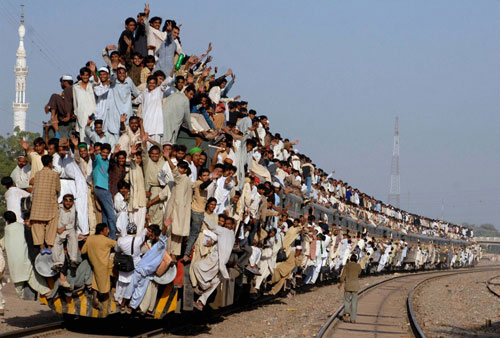No need to look to India for profitable buses and trains. You can sees profitable buses and trains in the Toronto area. The TTC subway trains are definately profitable. The 19 Hurontario buses are profitable.
Profitability is not just about full vehicles either. Along a route like Hurontario, people travel short distances so the turnover in passengers is very frequent. Passengers are constantly boarding the buses, but passengers are also constantly disembarking, and freeing up space on the bus. So ridership and revenue are very high compared to the actual service provided, i.e. the money needed to operate the route.
So if the TTC Metropass encourages more short distance rides, do these rides actually put that much pressure on the TTC??? Not really. For that same reason, time-based transfers would not put pressure on the TTC either.
Trying to discourage people from using transit, especially people who would travel short distances using a pass or time-based transfer, would not make it more profitable. I think the reason the TTC is so efficient compared to the rest of North America is because riders travel shorter distances compared to the other systems. If this changes, the TTC could find itself in a very bad situation.
And of course lower ridership would also mean lower revenues from the provincial gas tax, as the portion allocated to the TTC is mostly based on ridership and is enough to cover more than one-third of the subsidy required for the operation of the TTC. So no, lowering ridership is probably not a good strategy...






